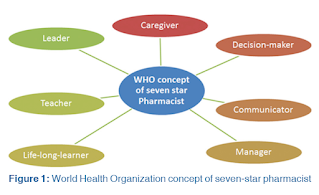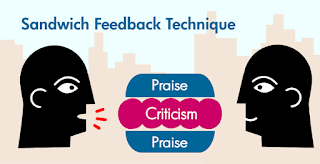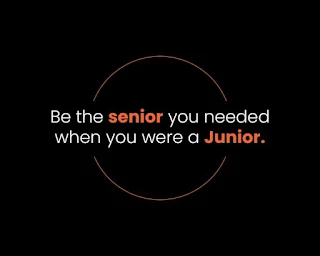Teaching
Introduction
The third World Health Organization Consultative Group on the Role of the Pharmacist held in 1997 proposed the concept of "Seven-Star Pharmacist".
- Three additional roles (researcher, entreprenuer, agent of positive change) were introduced later, leading to the "Ten-star pharmacist".
One of the pharmacist's key responsibilities is to assist with the education and training of future generations of pharmacists and the public.
- My English teacher's words still ring true: "The more you use what I teach, the more it becomes your own." This sentiment deeply resonates with my passion for knowledge sharing.
- Not many provisional registered pharmacists enjoyed being bombarded by numerous medical questions daily. In traditional education, we are often trained through rote memorization and direct instruction, rather than actively seeking improvement and developing our reasoning skills.
- On the other hand, preceptors often lack dedicated recognition for their efforts. To illustrate, preceptors cannot even earn a single penny when they take the effort to guide you the proper way.
NOTE: Isn't life too fake if we all practice sandwich feedback technique?
Experience Sharing
I believe, our method of teaching is mostly modelled based on past experience (that is how I was trained when I was once a provisional registered pharmacist) and how we think it should be.
- Hence, I often tell fresh fully registered pharmacists, "starting from this moment, you can show how you would guide fresh provisional registered pharmacist differently from previous personal experience".
From my personal experience, teaching should not focus only on developing a detailed syllabus, but also on considering provisional registered pharmacists' personal goals for the rotation.
- When I was fresh in the pharmacy profession, I was ambitious. I aimed to pass down all my knowledge and experience to provisional registered pharmacists in rotation, expecting them to be in active learning mode.
- However, very soon, I realised it was a mission impossible.
- You can easily demand yourself to put extra effort in self-learning, but practically not possible to force anyone to learn more.
- This experience made me question my approach. I wondered if I was being too strict or overexpecting. Perhaps, like everyone else, I should just focus on the tasks at hand. Why get frustrated by disappointment?
- Nonetheless, this realization partly pushed me to create the Rx Note blog, which allows fresh pharmacists who are eager to learn more to do so at their own pace.
Moreover, I have also noticed that as we become more senior, we develop more patience to guide juniors, perhaps because we have seen worse cases where things could go wrong.
- More importantly, we reach the same conclusion that it is your own responsibility to make sure you learn from what you do.
- For those who are lazy and unmotivated, we may be tempted to stop caring and let them be. On the other hand, it is often more productive to invest our efforts in guiding those with potential and the right attitude to improve.
- Ultimately, a provisional registered pharmacist's learning journey rests heavily on their own initiative.
To the Fresh Graduates: Cycles of Training
Provisionally registered pharmacists may not see their experience as part of a larger training cycle.
- However, for each batch of fresh pharmacy graduates, we slowly guide them from scratch, aiming for them to be proficient by the year's end.
- Supervisors may find it frustrating to train provisional registered pharmacists from novice to competent, only to have them leave and the cycle begin anew with the next batch.
- Often, the same mistakes are repeated by different people of the same or different batch. To a certain extent, the frustration has built up and the enthusiasm has lost.
As you progress in your pharmacy career and become a senior pharmacist yourself, you gain a deeper understanding of why senior pharmacists set expectations and make demands of new graduates.
- Looking back on our provisional registered pharmacist journey, are we really the best students that our senior pharmacists expecting?
- Or rather, we did numerous silly mistakes or do not have adequate knowledge and experience in the first year?
- Furthermore, are newer generations increasingly lacking the self-initiative to learn, instead opting for easy shortcuts and immediate gratification?
Everyone is learning on their own pace and picking up the skills and confidence along the journey.
- However, this is just an excuse if you are not actively learning new things for self-improvement.
- You shall not blame as if seniors know more because they have more working experience (BUT they also put in extra efforts to learn up).
Finally, it is always wiser to seek clarification by asking questions when you have doubts, rather than persevering with your own assumptions.
- Even when senior pharmacists try to guide you step-by-step, they may struggle to assess your understanding if you simply nod "yes" throughout the process, only to make mistakes later.
To the Preceptors: Mutualism
As human beings, it is important to have mutual respect one another.
- We should not harbour thoughts of superiority or consider ourselves better than others.
- Gone are the days where we were the fresh ones, and the juniors will also grow older and may become your colleagues.
Crucially, we should not judge a person's capability based on rumours and treat them unfairly.
- For example, we should not assume that juniors as not giving their best effort or that their perfomance is subpar.
- They too face significant stress in completing their tasks and have other commitments in life.
Let us not forget the ultimate goal of mutualism.
- Senior pharmacists can share their experiences with junior pharmacists, while the juniors can provide updates on current medical knowledge.
- It is always interesting to explore an issue from a different perspective.
Summary
To teach is to have passion and dedication for others, a selfless giving of your time and commitment.
- Believe me, it is not an easy task to undertake the teaching role.
- Some pharmacists may have vast knowledge and expertise in certain clinical areas, but they may have forgotten the challenges they face as provisional registered pharmacists, which can make it difficult for them to communicate effectively with provisional registered pharmacists at their level.
But, remember this: Every fresh pharmacy graduate is like a blank cake.
- It is unlikely that any preceptors can transform them into biscuits, as they are inherently cakes.
- What we do is decorate them through provisional registered training, enabling them to better cope with future challenges.
NOTE: It is sometimes funny to think that though we may learn a topic in detail (steps by steps, down to molecular level), but then we are summarizing the information to give an overall description when explaining in lay man to a patient.




Comments
Post a Comment